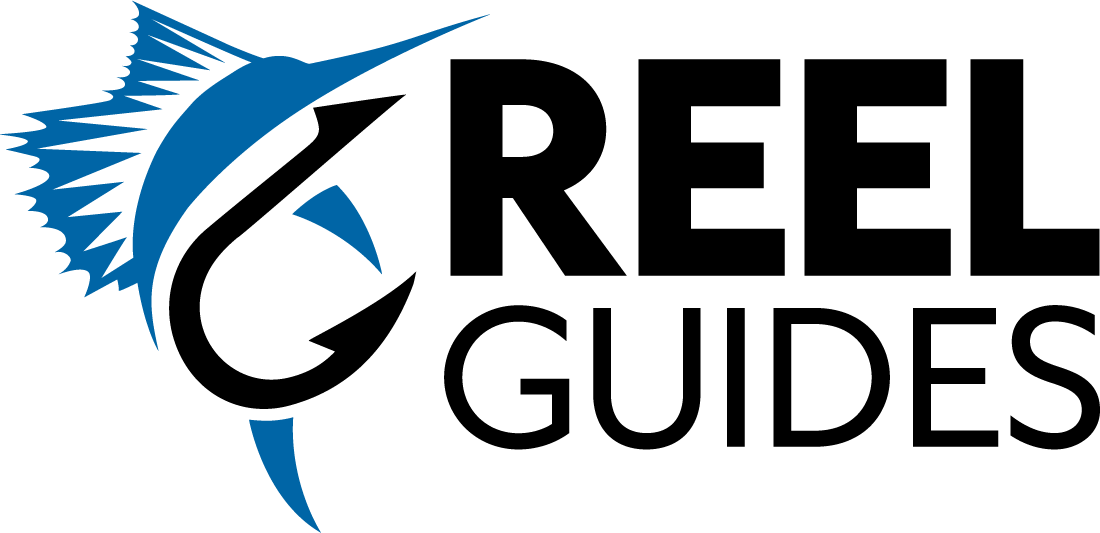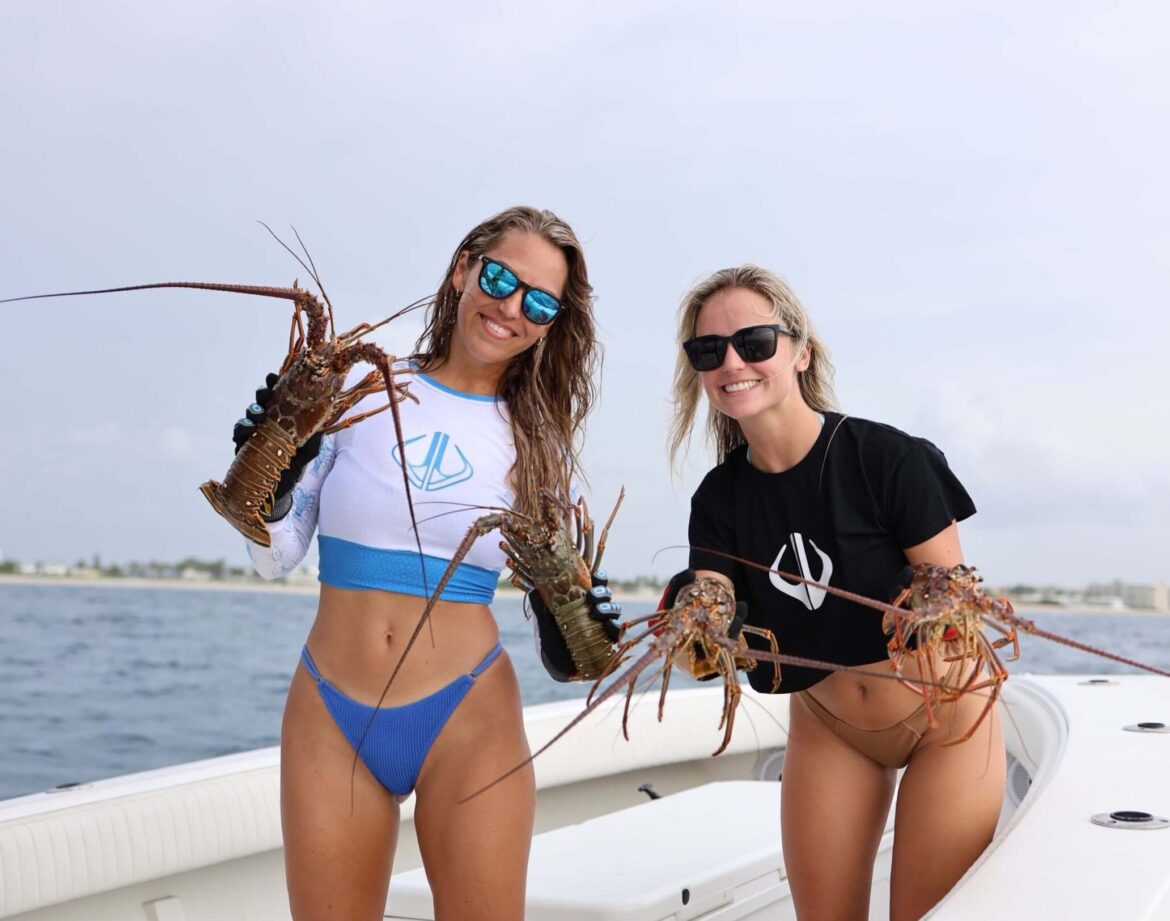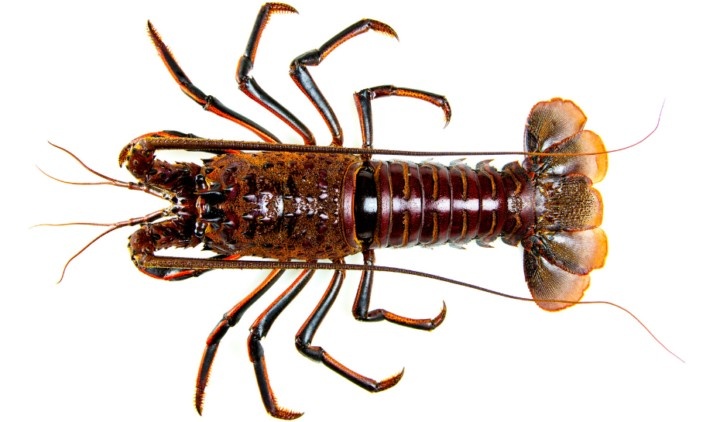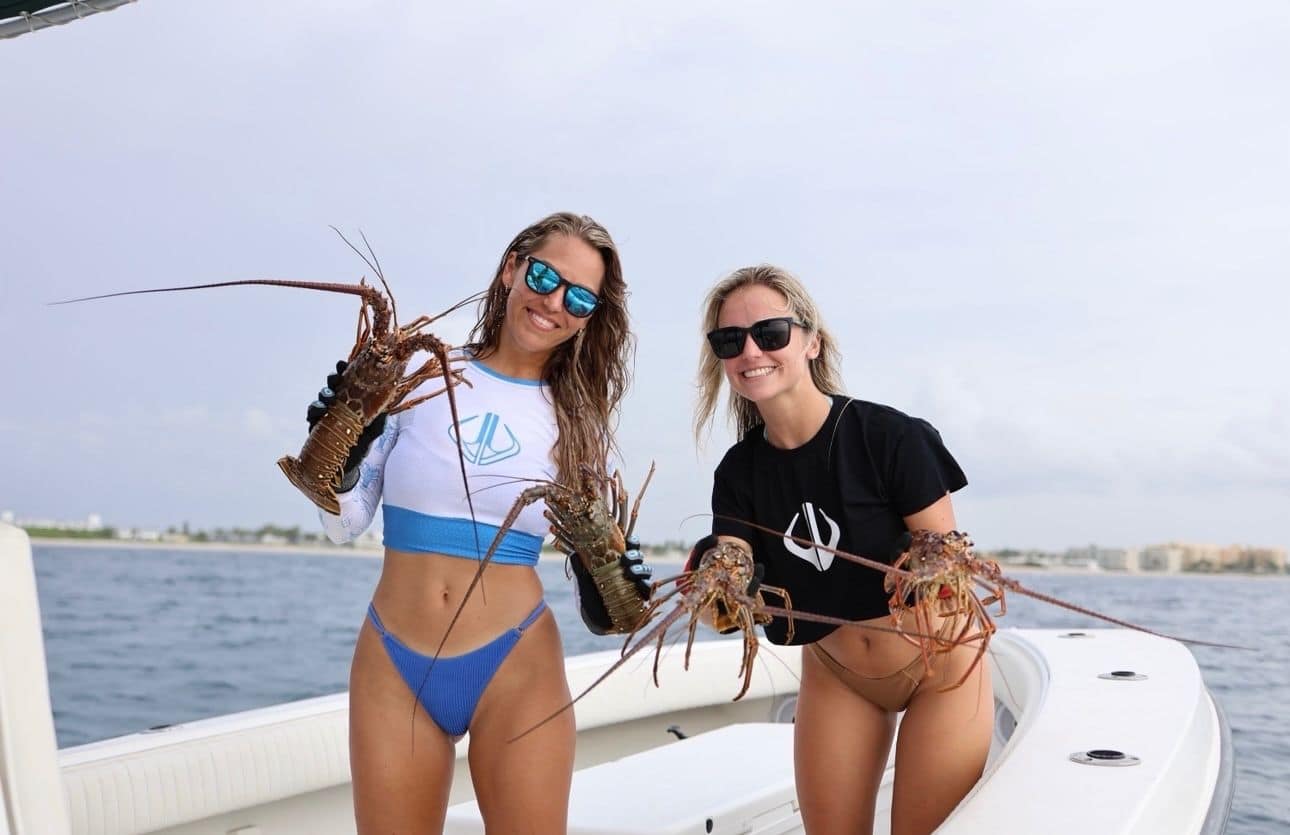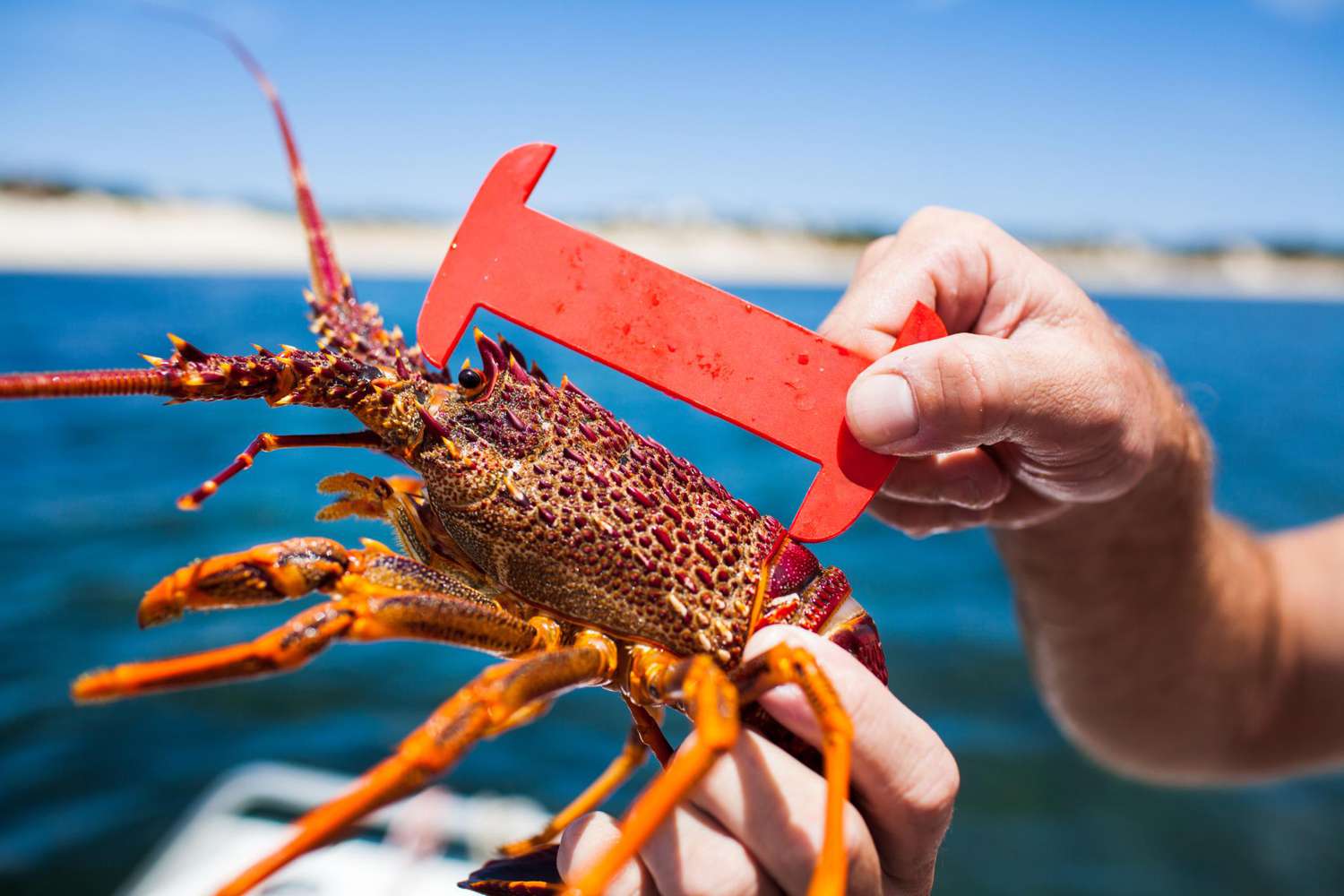Lobster Fishing & Bully-Netting: The 2025 Florida Keys Guide
Written By: Captain Kody Michael
Locals, tourists, and commercial fishermen all rush to the waters of Key West during the lobster season in hunt of these delicious crustaceans. There are many varieties of lobsters found in the Florida Keys, but during lobster season, the most popular and abundant is the Florida spiny lobster.
Lobster Season in the Florida Keys
Mini Lobster Season
Dates and Overview: Mini Lobster Season, also known as Sport Lobster Season, is a two-day event held annually on the last consecutive Wednesday and Thursday of July. It serves as a precursor to the Regular Lobster Season and allows recreational divers to harvest lobsters before commercial fishermen. As divers and fishermen prepare to take advantage of this opportunity, it’s essential to stay informed and well-prepared.
Here are some key tips to ensure a successful and safe mini lobster season.
Experience: During Mini Season, the Keys buzz with excitement as divers flock to the turquoise waters in search of spiny lobsters. It’s a great time for families and friends to bond over snorkeling and diving adventures!
1. Permits
Before you dive into the exciting world of lobster hunting, make sure you have the necessary permits. Here’s what you need:
- Recreational Saltwater Fishing License: This is mandatory for anyone aged 16 and older fishing in Florida waters.
- Lobster Permit: A specific lobster permit is required to harvest spiny lobsters. This can be obtained online or at local fishing supply stores.
Keep abreast of any changes to regulations by visiting the Florida Fish and Wildlife Conservation Commission (FWC) website. Staying updated will help you comply with all legal requirements and avoid any potential fines.
2. Safety First
Safety should always be your top priority when diving for lobsters. Here are essential safety tips:
- Dive with a Buddy: Never dive alone. Having a buddy not only enhances safety but also increases your chances of a successful catch. Look out for each other and ensure you’re both aware of your surroundings.
- Adhere to Size and Bag Limits: Familiarize yourself with the current size and bag limits for lobsters. In Florida, the legal size for spiny lobsters is generally 3 inches measured from the eye socket to the end of the carapace. You can keep a maximum of 12 lobsters per person during mini season. Always check the latest regulations as they can change annually.
- Use a Measuring Device: Carry a measuring device or a gauge specifically designed for lobsters. This ensures that you can quickly and accurately determine whether a lobster meets the legal size requirement.
- Be Aware of Your Environment: Understand the dive site, including currents and potential hazards. Always check weather conditions before heading out and have a contingency plan in case of emergencies.
3. Hotspots for Lobster Diving
The Florida Keys offer a plethora of hotspots renowned for their productive lobster grounds. Here are a few top locations to consider:
- Marathon: Marathon features numerous reefs and ledges that are prime habitats for lobsters. Spots like the Seven Mile Bridge are popular among divers due to their accessibility and abundance of marine life.
- Key Largo: Home to John Pennekamp Coral Reef State Park, Key Largo boasts exceptional diving conditions and vibrant underwater ecosystems. Many divers flock to this area for its clear waters and rich lobster populations.
- Islamorada: Known as the “Sportfishing Capital of the World,” Islamorada also offers fantastic lobster diving. The area’s patch reefs and wrecks provide excellent habitats for lobsters, making it a favorite among both experienced and novice divers.
Regular Lobster Season
Dates and Duration: Regular lobster season in the Florida Keys typically runs from August 6th to March 31st of the following year. This extended season allows both residents and visitors ample time to enjoy lobster diving in the region.
Experience: As summer transitions into fall, lobster enthusiasts continue to explore the Keys’ reefs and ledges for lobsters. The season offers quieter and more relaxed diving conditions compared to the bustling Mini Season.
1. Gear Preparation
Before you hit the water, ensure your diving gear is in top shape. Here’s what to focus on:
- Inspect Your Equipment: Check all your diving gear, including snorkels, masks, fins, and wetsuits, for any wear and tear. Ensure that your mask seals properly and that your snorkel is clear of obstructions.
- Tickle Sticks: Tickle sticks are essential for coaxing lobsters out of their hiding spots. Make sure yours is sturdy and the right length for your diving depth. Practice using it to increase your efficiency when you’re in the water.
- Safety Gear: Don’t forget to include safety equipment, such as a dive knife, signaling devices, and a first aid kit. Being prepared for emergencies is crucial for a safe diving experience.
2. Conservation
Sustainable practices are vital for the health of lobster populations and the marine ecosystem. Here are some conservation tips:
- Follow Regulations: Familiarize yourself with local fishing regulations, including size limits and bag limits. For spiny lobsters in Florida, the legal size is typically 3 inches from the eye socket to the end of the carapace, with a bag limit of 6 per person. Always check for any updates before you go.
- Practice Responsible Harvesting: Only take what you need and avoid overfishing. If you catch a lobster that is below the legal size, return it carefully to minimize stress and injury.
- Respect Marine Life: Avoid damaging coral reefs and other marine habitats while diving. Be mindful of your surroundings, and educate yourself about the local ecosystem to help protect it.
3. Local Insights
Engaging with local experts can greatly enhance your lobster-hunting experience. Here’s how to gain valuable insights:
- Consult Dive Shops: Local dive shops are a wealth of information. They can provide details on recent lobster sightings, the best dive spots, and current diving conditions. Many shops also offer guided dives, which can be particularly helpful for novice divers.
- Join Local Charters: Consider booking a lobster charter. Experienced captains know the waters well and can take you to prime lobster locations while ensuring you adhere to safety and conservation guidelines.
- Network with Fellow Divers: Join local diving communities or forums to share tips and experiences. Other divers can provide firsthand information about successful techniques and hidden spots that aren’t widely known.
How to Dive for Lobsters
Free Diving
Let’s talk about free diving..
- Get your snorkel, mask, fins, tickle stick, and lobster gauge!
- Put on your weight belt and buckle up.
- Always carry gloves, a net, and tickling stick!
- You can dive in shallow water or deeper depending on your comfort level; the choice is yours.
Tank Diving
Let’s talk about tank diving..
- ALWAYS remember your dive computer!
- Set up the weights, link your BCD and regulator to your tank
- Once your gear is set up, get your mask, fins, snorkel, and lobster gauge
- After that, make sure to load your weights into the pockets
- Before you dive, make sure you have on your gloves, and don’t forget your catch bag, snare, net, and tickle stick
Tips for Diving to Catch Lobsters in Key West, Florida
- A safe and fruitful lobstering in the Keys requires several preparations. While lobster fishing, you are required to use a dive flag. While in the water, the flag should be up; while underway, it should be down.
- A diver’s distance from the dive flag shall not exceed 300 feet or 100 feet in the case of a canal.
- During lobster hunting in Florida, be sure to keep a close check on all the essential gear, including your lobster diving gear and the boat. Prior to setting sail, make sure to restock any items that require it. When another boat’s dive flag is flying, your vessel should also remain at a stop within 100 yards.
- Take your time lobstering in the Keys! Instead of grabbing it, gently lure the lobster into your net with a tickle stick. Their antennas will reveal your presence if touched, so keep that in mind.
Lobster Bully-Netting: An Alternative to Diving
Lobster bully-netting is an innovative alternative to free-diving for harvesting lobsters, combining efficiency with sustainability. This method involves using a weighted net to trap lobsters in shallow waters, allowing fishers to catch them without the need for diving gear.
Unlike free-diving, which can be physically demanding and limited by breath-holding capacity, bullynetting provides a more accessible approach, making it suitable for a wider range of fishers. Additionally, it minimizes the environmental impact by reducing disturbance to marine habitats and allowing for selective harvesting. By promoting responsible fishing practices, bullynetting not only ensures the longevity of lobster populations but also fosters a more sustainable seafood industry.
Planning Your Lobster Adventure
Whether you’re planning a thrilling dive during Mini Season or a leisurely exploration in the Regular Season, the Florida Keys offer unparalleled opportunities for lobster hunting. From vibrant coral reefs to expansive seagrass beds, every dive promises an unforgettable underwater experience.
Looking to book a lobster charter?
We started Reel Guides to make it easy to book fishing trips at your preferred destination!
Click here to browse and book your next lobster charter in Florida or throughout the United States.
Use promo code REELGUIDES for an additional 20% off your next order at www.mustad-fishing.com.
If you need the gear equipment or want to know more about lobster diving and fishing, visit Reel Guides!
Drop a Comment!
We’d love to hear from you! If you have any tips or experiences to share, feel free to drop a comment below. Have any questions about what you read or about fishing in general? Don’t hesitate to ask!
For more tips and techniques on fishing, don’t forget to subscribe to our blog and follow along on our fishing adventures on our channel Reel Guides TV on YouTube.
